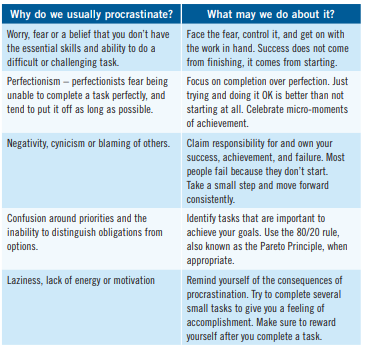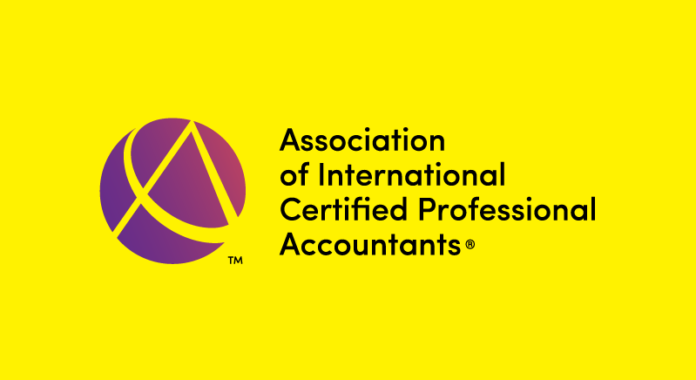April 2021
Clancy Peiris has some top advice on how to develop that all-important work ethic.
Work ethic is a set of values based on the ideals hard work, self-discipline and self-regulation. Having a strong work ethic will be an essential part of being successful in both your CIMA studies and your career.
Forming good habits such as focusing, staying motivated, or finishing tasks immediately will contribute to creating a good work ethic, but that’s always easier said than done. So here are our five top tips to transform yourself into a self-disciplined learner and attain your learning (and career) goals smarter and quicker.
Tip #1
Focus on ‘why’ you do what you do. As an adult learner, you will be more motivated if you can understand how the potential outcome can benefit you. Therefore, keep reminding yourself of the purpose of your CIMA studies and what you want to achieve with it in life.
Actions: Write down ten reasons you want to complete your CIMA exams and place this list a visible spot on your study desk.
You may initially find it difficult to come up with more than a couple reasons but stick to this task and the inspiration will flow. When you get distracted or discouraged, remind yourself ‘why’ you are doing this and it will give you the power to refocus on the critical task at hand.
Tip #2
Control the present. You only have control over the present moment, which is a reflection of the overall direction and nature of your destination.
To pass your CIMA exams tomorrow, you need to study and prepare for your exams today. You can ensure that you stay on track reaching your planned goal by focusing your energy on the right tasks.
Actions: Plan your week in advance (say, every Sunday evening) and have a dedicated calendar (not a to-do list) where you clearly allocate day, time and length for your study sessions among your other activities for the week.
Your calendar will help you say no to everything that does not support your goal (saying yes to one things means saying no to many). Having a meaningful routine will help you block distractions. Remember that each productive day contributes to a productive week, a productive month is a collection of four productive weeks, and so on. Each step counts for reaching your goal.
Tip #3
Clean up your space. Working in a clean and clear area can help improve focus and give you some peace of mind. Having a dedicated space with minimum distractions is ideal for doing efficient and focused study sessions, and will help you keep things organised.
Actions: Turn off all push notifications on your computer and keep your mobile phone away, either put it on silence or switch it off. Let your family and friends know you are studying so that so that they won’t disturb you – your priorities are not necessarily their priorities.
A change of scenery could be all it takes to get you into study mode. If you can’t do it at home, think about booking a meeting room in the office or going to a library for a few hours. If you prefer to have some background music while you study, instrumental music is best.
Tip #4
Address procrastination head on. Procrastination is a series of avoidance behaviours and failure of self-regulation. You choose the pleasant and lovely bits of life over the challenging and tedious – it’s entirely rational, understandable, and makes perfect sense. However, procrastination is often followed by a series of negative emotions such as guilt, doubt, inadequacy and self-loathing, which results in creating more stress and anxiety.
Actions: Use procrastination as a personal diagnostic tool as it usually tells us something about ourselves. You need to identify what causes you to experience a gap between your intention and action, and address the underlying issue. Check the table at the end of the article for help with this task.
A perfect storm of procrastination usually occurs when an unpleasant task meets a person who is highly impulsive and lacks self-discipline. There will never be a right time, mood, vibe, or place – start now.
Tip #5
Stay consistent. If you want to boil water, you need to keep heating it until it fully boils. If you keep heating it in intervals, it will take more time for the water to boil, or it may never boil at all. The same applies to your studies.
Start initially with a 30 minutes study session then take a short break, increase the length of your study session by five minutes every day until it reaches 50 minutes. Keeping this rhythm up will benefit you throughout your studies.
Actions: Differentiate between leisure and learning. Set aside time to reward yourself after completing a specified amount of studying. Go for a walk/run/swim, watch TV, listen to music – do anything that makes you relaxed and happy.
Reward yourself after the session of studies (not before!). You may be tempted you to play a video game, call a friend to catch up, browse social media for five minutes and then start studying – this stragegy will prove detrimental in the long-term.
Finally, remember that you may not reach the destination overnight, but you can change the direction of travel overnight. Being productive is about energy and focus (not the amount of time you spent on one task) – so for maximum productivity and motivation, think about sprints, not marathons; and then rest.

• Clancy Peiris, Senior Learning Development Manager, Association of International Certified Professional Accountants




